The Voice of ANU Students Since 1950
Ethical Media Standards
As part of our most recent policy review and in developing a vision for the responsibilities of the organisation, Woroni’s Board has considered the role and responsibilities we have, as an Association, to actively engage in social issues. The objects of the Association state that ANU Student Media will promote best practice in journalism, to this effect the Board has endorsed the adoption of a number of ethical guidelines from media and entertainment industry leaders. These handbooks cover a number of issue areas, applying to different aspects of Woroni’s multiple platforms and productions. In so doing we have made a commitment to utilising them as guides for best practice.
The Board is always interested in feedback regarding our ethical stances, especially with regards to developing new guidelines and improving past practices. If you would like to raise points regarding how these guides are implemented in practice, the internal operations of the organisation, or would like to engage in discussions on new standards, please email the Deputy Editor-in-Chief at vy@woroni.com.au
Australian Institute of Family Studies: Reporting on sexual assault 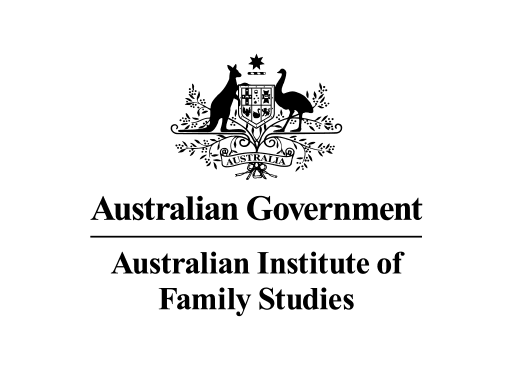 Reporting on Sexual Assault was developed by the former Australian Centre for the Study of Sexual Assault as a “backgrounder” for journalists and other media professionals, including bloggers and other producers of online forms of media. It is intended to provide information about some of the key issues in reporting sexual assault, including language and details, placing the news story in context; and information about support. This resource also provides further information to support the accurate and ethical reporting of sexual assault including guidelines for interviewing victim/survivors of sexual assault, online and interactive media, background information on sexual assault; and current guidelines and other resources. You can read the full version of the guide here.
Reporting on Sexual Assault was developed by the former Australian Centre for the Study of Sexual Assault as a “backgrounder” for journalists and other media professionals, including bloggers and other producers of online forms of media. It is intended to provide information about some of the key issues in reporting sexual assault, including language and details, placing the news story in context; and information about support. This resource also provides further information to support the accurate and ethical reporting of sexual assault including guidelines for interviewing victim/survivors of sexual assault, online and interactive media, background information on sexual assault; and current guidelines and other resources. You can read the full version of the guide here.
GLAAD: Media Reference Guide 10th Edition 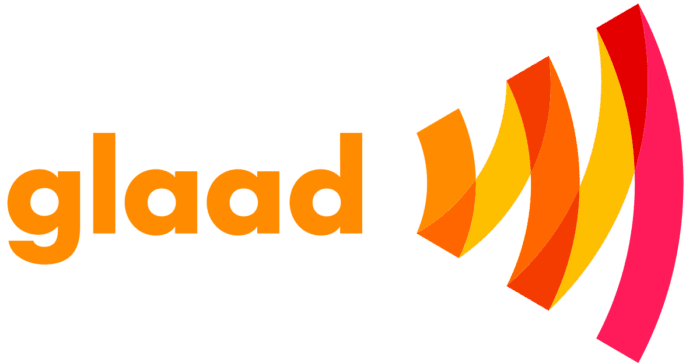
GLAAD is a U.S. non-governmental media monitoring organisation founded by LGBTQ people in the media. It aims to promote understanding, increase acceptance, and advance equality, with a focus on discrimination in media. GLAAD’s Media Reference Guide is intended to be used by journalists reporting for mainstream media outlets and by creators in entertainment media who want to tell the stories of LGBTQ people fairly and accurately. It is not intended to be an all-inclusive glossary of language used within the LGBTQ community, nor is it a prescriptive guide for LGBTQ people. You can read the full version of the guide here.
Our Watch: Reporting on Domestic Violence
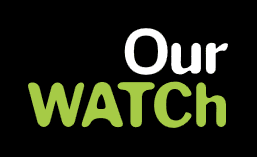 Our Watch seeks to engage with the media through specific programs and guides for journalists who report on violence against women and their children. Reporting on Domestic Violence is a guide to reporting on domestic violence – for journalists looking for statistics and information on how to conduct safe interviews and frame stories in an ethical way. It provides appropriate terminology, advice on how to report on domestic violence and outlines of the impacts domestic violence has on the community. You can read the full version of the guide here.
Our Watch seeks to engage with the media through specific programs and guides for journalists who report on violence against women and their children. Reporting on Domestic Violence is a guide to reporting on domestic violence – for journalists looking for statistics and information on how to conduct safe interviews and frame stories in an ethical way. It provides appropriate terminology, advice on how to report on domestic violence and outlines of the impacts domestic violence has on the community. You can read the full version of the guide here.
Mindframe: Reporting suicide and mental illness
 The Australian Government’s Mindframe National Media Initiative (Mindframe) aims to encourage responsible, accurate and sensitive representation of mental illness and suicide in the Australian mass media. For over 10 years, the media sector has been actively involved in working with Mindframe and the suicide prevention and mental health sectors, in helping to promote suicide prevention and addressing stigma and discrimination associated with mental illness. Suicide reports, when made, are usually presented with care to minimise the pain for relatives and friends. The resource was also developed with the assistance of media professionals, suicide and mental health experts and consumer organisations, to inform appropriate reporting of suicide and mental illness, to minimise harm and copycat behaviour, and reduce the stigma and discrimination experienced by people with mental illness. You can read the full version of the guide here.
The Australian Government’s Mindframe National Media Initiative (Mindframe) aims to encourage responsible, accurate and sensitive representation of mental illness and suicide in the Australian mass media. For over 10 years, the media sector has been actively involved in working with Mindframe and the suicide prevention and mental health sectors, in helping to promote suicide prevention and addressing stigma and discrimination associated with mental illness. Suicide reports, when made, are usually presented with care to minimise the pain for relatives and friends. The resource was also developed with the assistance of media professionals, suicide and mental health experts and consumer organisations, to inform appropriate reporting of suicide and mental illness, to minimise harm and copycat behaviour, and reduce the stigma and discrimination experienced by people with mental illness. You can read the full version of the guide here.
Media Diversity Australia: Reporting on Aboriginal and Torres Strait Islander Peoples and Issues
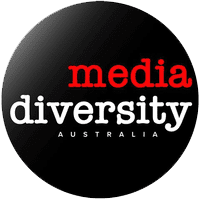 Media Diversity Australia is a nation wide not-for-profit organisation run by volunteers that is working to make our news media more reflective of all Australians. Whether deliberate or unconscious, those working in the media have the power to influence how Aboriginal and Torres Strait Islander communities are perceived and understood. Inaccurate or inflammatory reporting from a position of power can have a detrimental impact on an already oppressed community. Media Diversity Australia in partnership with National Congress of Australia’s First Peoples and with the support of the Australian Broadcasting Corporation have prepared the guide to assist journalists when reporting on, or interviewing, Aboriginal and Torres Strait Islander peoples. It is by no means a reporting bible, but rather, a handy guide to assist journalists. It should be used as a starting point and general guide only You can read the full version of the guide here.
Media Diversity Australia is a nation wide not-for-profit organisation run by volunteers that is working to make our news media more reflective of all Australians. Whether deliberate or unconscious, those working in the media have the power to influence how Aboriginal and Torres Strait Islander communities are perceived and understood. Inaccurate or inflammatory reporting from a position of power can have a detrimental impact on an already oppressed community. Media Diversity Australia in partnership with National Congress of Australia’s First Peoples and with the support of the Australian Broadcasting Corporation have prepared the guide to assist journalists when reporting on, or interviewing, Aboriginal and Torres Strait Islander peoples. It is by no means a reporting bible, but rather, a handy guide to assist journalists. It should be used as a starting point and general guide only You can read the full version of the guide here.
Screen Australia: Pathways & Protocols
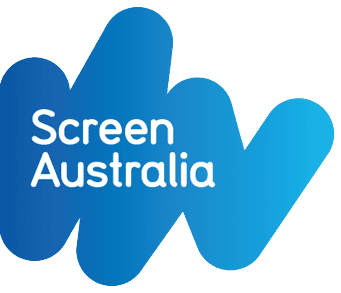 Screen Australia is a Federal Government agency charged with supporting Australian screen development, production and promotion. It is not a production company and does not produce works. As a government agency, it provides funding support to Australian film, television, documentary and digital media makers. In May 2009, Screen Australia published a comprehensive guide for all filmmakers working with Indigenous content and communities, titled Pathways & Protocols: a filmmaker’s guide to working with Indigenous people, culture and concepts. Pathways & Protocols covers key areas such as the principles for protocols and implementing those protocols within film practice; what the concepts of communication, consultation and consent mean; copyright law and related legal issues such as contracts and Indigenous communal moral rights; information for Indigenous communities on their rights and obligations when working on film projects; and information for non-Indigenous filmmakers working with Indigenous subject matter. You can read the full version of the guide here.
Screen Australia is a Federal Government agency charged with supporting Australian screen development, production and promotion. It is not a production company and does not produce works. As a government agency, it provides funding support to Australian film, television, documentary and digital media makers. In May 2009, Screen Australia published a comprehensive guide for all filmmakers working with Indigenous content and communities, titled Pathways & Protocols: a filmmaker’s guide to working with Indigenous people, culture and concepts. Pathways & Protocols covers key areas such as the principles for protocols and implementing those protocols within film practice; what the concepts of communication, consultation and consent mean; copyright law and related legal issues such as contracts and Indigenous communal moral rights; information for Indigenous communities on their rights and obligations when working on film projects; and information for non-Indigenous filmmakers working with Indigenous subject matter. You can read the full version of the guide here.
If you or someone you know have been affected in any way, please reach out to the support services listed.
ANU Counselling The ANU Counselling Centre promotes, supports and enhances mental health and wellbeing within the University student community. It is a free, confidential and non-diagnostic service available to all currently enrolled ANU students. No referral or Mental Health Treatment Plan from a General Practitioner is required to attend appointments.
http://www.anu.edu.au/…/…/counselling/anu-counselling-centre
Canberra Rape Crisis Centre (6247 2525) CRCC are on campus and available to support you if you have experienced sexual violence, harassment, or anything that has made you feel uncomfortable. You don’t need a medicare card to see them, all appointments are free, and nobody will be told you have spoken to them. You can call CRCC on 6247 2525 between 7am and 11pm.
Lifeline (13 11 14) A national charity providing all Australians experiencing a personal crisis with access to 24 hour crisis support and suicide prevention services. Call 13 11 13.
1800RESPECT Provides support for people experiencing, or at risk of experiencing, sexual assault, domestic or family violence, their friends and family, and workers and professionals supporting someone experiencing, or at risk of experiencing sexual assault, domestic or family violence. Call 1800 737 732.